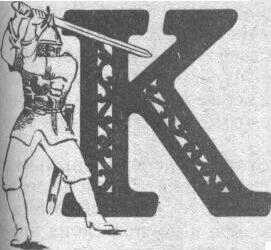Ancient Russia literature
Russian Proverbs and Sayings
This is collection of Russian proverbs and sayings.Some of the use allot till today some you can find in literature:
** Anyone wanting to provide additional proverbs and sayings is invited to do so! **
1. A man is judged by his deeds, not by his words. (People can say many things,because talking is easy,but it is more important what person does than what he says he will do)
2. The sun will shine into our yard too. (Neither the weather nor people can remain disturbed for long;the calm(sun) must follow)
3. One does not sharpen the axes after the right time; after the time they are needed. (It is useless to have something when there is no use for it)
4. After a storm (comes) fair weather, after sorrow (comes) joy. (There must be something better after every piece of unpleasantness)
5. All are not cooks that walk with long knives. (Good looks do not always go to with virtue, and ugliness does not always go with sin) ........
more..
Zadonshchina
 "Zadonshchina" is a monument of ancient Russian literature of the end of the ’IV century. The authorship is attributed to Sofony Ryazanets. The narrative is opposed to "The Word about Igor's Regiment", which described defeat of the Russian armies in the battle with Polovtsy and a brilliant victory of the Russian armed forces led by Moscow prince Dmitry.
"Zadonshchina" belongs to a group of stories, which appeared in connection with Kulikovo battle. The story developed on the basis of annalistic legend, folklore legends, and national poetic creativity. "Zadonshchina" is a monument of ancient Russian literature of the end of the ’IV century. The authorship is attributed to Sofony Ryazanets. The narrative is opposed to "The Word about Igor's Regiment", which described defeat of the Russian armies in the battle with Polovtsy and a brilliant victory of the Russian armed forces led by Moscow prince Dmitry.
"Zadonshchina" belongs to a group of stories, which appeared in connection with Kulikovo battle. The story developed on the basis of annalistic legend, folklore legends, and national poetic creativity.
On September 8, 1380 on Kulikovo field (a district within the limits of the Tulskaya oblast, located in the upper Don river, at the confluence with the river Nepryadva, in 1380 - "wild field" - unsettled steppe) a battle between a coalition of the Russian princes headed by the Moscow grand duke Dmitry Ivanovich and the Mongolian-Tatar army, strengthened by mercenary troops, under the leadership of Mamai, the Horde khan, took place. It was the first big battle between the Russians and the enslavers after the imposition of Mongolian-Tatar yoke (1237). This battle ended in utter defeat of the Mongolian-Tatars. Kulikovo battle (frequently referred to as Mamai battle) did not terminate foreign yoke in Russia (it would be only in 100 years - in 1480), but the character of relations between Russian principalities and the Horde drastically changed, the dominant and unifying role of the Moscow principality and the Moscow prince became evident...
more..
Travel over Three Seas
"Travel over three seas' is the ancient Russian work in the style of diary records. The author - Tver merchant Athanasius Nikitin - describes the travel through Derbent and Baku by land to Persia and then to India. Travel lasted from 1466 to 1472. On his way home, not reaching Smolensk, Athanasius Nikitin died.
The most probable dating of travel is 1471-1474, according to another hypothesis - 1466-1472. Going with goods to Northern Azerbaijan (Shirvan), A.Nikitin was robbed by Tatars. Among people who had debts in Russia and whose way home was closed because of bankruptcy danger A.Nikitin went further south. He set out from Derbent to Baku, from there subsequently through Gurmyz to India. In some scientific and popular scientific works A. Nikitin is named "a commercial scout, enterprising merchant tracing a new way to India" etc. There is no basis for such assumptions: A. Nikitin undertook the travel perforce, at his own risk, without any official aid. And when Nikitin at last returned to Russia, he was hardly more able to repay his debts than in the beginning of the travel. The only fruit of the travel were Nikitin's records - "Travel over three seas", which, as it seems, he kept on the way, expecting, that his notes would be read by his 'Russian Christian brothers'...
more..
The Word about Igor's Regiment

The literary hero in the modern sense of the term - that is the character, who has plotline part - is absent in the literature of Ancient Russia. A significant part of the works created in ’-XVI centuries, in general, is connected with rhetoric - solemn speeches, sermons, homilies, parables; if there is a plot, for instance in biographies, stories about travels, annalistic stories about important historical events - there is no fiction, at least deliberate. And the literary hero, as a rule, acts in circumstances specially made up by the author, these circumstances allow the character to reveal and show himself better. Calling some characters of old Russian literature (for example, semi-fabulous Peter and Fevronia Muromskie from the Biography, written by Ermolai-Erazm) "literary heroes", we should remember, that it not exactly the right word. It would be more correct to speak about "literary images" created by writers of Ancient Russia. These images have forever become the part and soul of national cultural memory...
more..
|